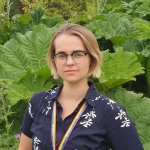
People
Find out more about our staff.
Meet the team
Head of School

Professor Patricia Pulham
Head of the School of Arts, Humanities and Creative Industries, Professor of Victorian Literature
School Executive Board

Dr Leona Archer
Senior Lecturer in French

Dr Constance Bantman
Head of Literature and Languages. Associate Professor in French

Professor Sabine Braun
Professor of Translation Studies; Director, Centre for Translation Studies; Co-Director, Surrey Institute for People-Centred AI

Dr Allan Kilner-Johnson
Professor of English Literature

Professor Bran Nicol
Professor of English Literature / University Co-Lead for Research Culture: People and Environment

Professor Patricia Pulham
Head of the School of Arts, Humanities and Creative Industries, Professor of Victorian Literature
Academic staff

Dr Leona Archer
Senior Lecturer in French

Dr Dimitris Asimakoulas
Deputy Director (Centre for Translation Studies), Director of Studies (Literature and Languages), Programme Leader: MSc AI for Translation and Interpreting Studies; MA Translation & AI; MA Translation, Interpreting & AI; MA Interpreting, Technology & AI

Professor Matthew Baerman
Professorial Research Fellow (SMG)

Dr Liz Bahs
Senior Lecturer in Creative Writing; Programme Director for BA English Literature and / with Creative Writing

Dr Sacha Beniamine
Leverhulme Early Career Fellow

Anita Bond
Teaching Fellow in English for Academic Purposes

Dr Oliver Bond
Reader in Linguistics

Professor Sabine Braun
Professor of Translation Studies; Director, Centre for Translation Studies; Co-Director, Surrey Institute for People-Centred AI

Professor Greville Corbett
Distinguished Professor of Linguistics

Dr Elena Davitti
Associate Professor in Translation Studies

Dr Doris Dippold
Associate Professor in Intercultural Communication

Dr Danielle Dove
Lecturer in English Literature

Dr Stephen Fay
Senior Lecturer in Spanish & Director of the Digital World Research Centre

James Green
Programme Leader: English for Academic Purposes

Lynn Lawton
Teaching Fellow in English for Academic Purposes

Dr Gabriele Lazzari
Senior Lecturer in Contemporary Literature

Amy Leitch
Teaching Fellow in English for Academic Purposes

Dr Charlotte Mathieson
Senior Lecturer in Nineteenth-Century English Literature

Dr Lena Mattheis
Lecturer in Contemporary Literature

Dr Stephen Mooney
Senior Lecturer in Creative Writing; Deputy Associate Head, Education for the School of Arts, Humanities and Creative Industries (SAHCI)

Dr Amy Morgan
Lecturer in Medieval Literature

Professor Constantin Orasan
Professor of Language and Translation Technologies

Dr Beth Palmer
Associate Professor in English Literature

Jamie Popowich
Lecturer (A)

Professor Patricia Pulham
Head of the School of Arts, Humanities and Creative Industries, Professor of Victorian Literature

Dr Lucy Ella Rose
Lecturer in Victorian Literature

Professor Erich Round
British Academy Global Professor of Linguistics

Dr Angela Szczepaniak
Lecturer in Creative Writing

Dr Sharlene Teo
Lecturer in Creative Writing

Dr Carl Thompson
Reader in English Literature

Dr Fang Wang
Senior Lecturer in Translation Studies, Program Leader of MA Interpreting, Technology and AI (Chinese Pathway), Program Leader of MA Translation and AI (Chinese Pathway)

Professor Diane Watt
Professor of English Literature and Associate Head of School, Research and Innovation

Dr Estefania Yunes Vincke
Lecturer in Spanish

Dr Yuan Zou
Lecturer in Translation Studies

Dr Felix do Carmo
Senior Lecturer in Translation and Natural Language Processing
Research staff

Dr Nadezda Christopher
British Academy Postdoctoral Fellow

Dr Marina Chumakina
Research Fellow (SMG)

Dr Michael Franjieh
Research Fellow at the Surrey Morphology Group; Sustainability Fellow at the Institute for Sustainability

Dr David Gyorfi
Postdoctoral Researcher

Dr Steven Kaye
Research Fellow

Dr Masha Kyuseva
Research Fellow A

Dr Jeremy Pasquereau
Research Fellow

Dr Matteo Pellegrini
Research Fellow in Language Data Science

Dr Helen Sims-Williams
Postdoctoral Research Fellow in the Surrey Morphology Group

Dr Diana Singureanu
Postdoctoral Research Fellow in Interpreting Studies

Dr Ozlem Temizoz
Research Fellow in Translation and Interpreting-Lecturer (Maternity Cover)
Visiting staff

Dunstan Brown
Professor of Linguistics

Luciana Colucci
Visiting Researcher

Jeong Hee Ko
Visiting Researcher

Dr Bella Honess Roe
Visiting Lecturer

Dr Helen Hughes
Visiting Lecturer

Dr Tomasz Korybski
Research Fellow

Valeria Malandra
Visiting Lecturer

Alwyn Marriage
Research Fellow

Dr Cristina Recasens
Visiting Lecturer

Satori Soden
Visiting Researcher

Dr Anna-Stiina Wallinheimo
Visiting Research Fellow
Emeritus staff

Peter Barta
Emeritus Professor

Dr Ana Frankenberg-Garcia
Emerita Professor

Professor Philip Powrie
Emeritus Professor of Cinema Studies

Professor Margaret Rogers
Professor Emerita

Carol Sanders
Emerita Professor

Professor Marion Wynne-Davies
Emeritus Professor
Associate staff

Kevin Lin
Associate Lecturer

Dr Astra Papachristodoulou
Associate Tutor in Creative Writing

Dr Katerina Perdikaki
Associate Teaching Fellow

Ozlem Sansarci-Ali
Associate Teaching Fellow

Gary Tyas
Associate lecturer
Postgraduate research students

Shaimaa Ahmad
Postgraduate Research Student

Samaher Aljabri
PhD Researcher in Applied Linguistics, Language learning, Educational Psychology

Jawaher Alzahrani
Postgraduate Research Student
Anastasiia Bezobrazova
Postgraduate Research Student

Matilde Carbutto
Postgraduate Research Student in Interpreting and Translation

Arianna Carloni
Postgraduate Research Student

Felix Clutson
Postgraduate Research Student

Olga Davis
Postgraduate Research Student

Dr Andreea Deleanu
Researcher

Nelita Estewale
Postgraduate Research Student

Aurora Jonathan Goga
PGR in English Literature

Frances Hallam
Postgraduate Research Student

Melanie Han
Postgraduate Research Student
Hope Hao
Postgraduate Research Student
Pratibha Joshi
Postgraduate Research Student

Andrea Marzocchi
Postgraduate Research Student

Tom Mclaughlin
Postgraduate Research Student

Stephen Newell
Postgraduate Research Student

Sara Palmer
Postgraduate Research Student

Mark Poole
Postgraduate Research Student

Beth Roberts
Postgraduate Research Student

Mar Sanchez
Postgraduate Researcher

Dr Enaiê Schlögel De Azambuja
PhD Researcher

Daria Sokova
Leverhulme Trust Doctoral Scholar

Prapaporn Sompakdee
Postgraduate Research Student

Shiyi Tan
Postgraduate Research Student

Eleanor Taylor-Stilgoe
Postgraduate Research Student, Machine Translation in Healthcare Settings

Charlie Vickers
Postgraduate Research Student

Emily Wells
Leverhulme Trust Doctoral Scholar

Dr Sarah Wingrove
Associate Tutor

Shasha Zhang
PhD Candidate



